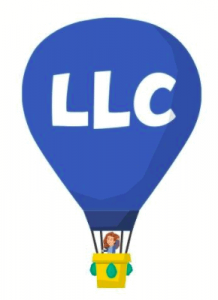Can You Start an LLC with Bad Credit?
You can absolutely start an LLC with bad credit. In fact, nearly 50 million Americans have bad credit, so if you’re in that boat, you’re not alone. If the government prevented every person with bad credit from starting an LLC, we’d have a lot fewer small businesses. Bad credit may complicate things, but it doesn’t mean you can’t start your own business. We’ll go over the ins-and-outs of bad credit and how it might affect your LLC.
In this article, we'll cover:
- What Is Credit and How Does It Work?
- Starting an LLC With Bad Credit
- How to Establish Credit for Your LLC
What is Credit and How Does it Work?
Credit is an agreement that you make with a lender that allows you to pay for goods and services without spending any of your money up front. The lender agrees to lend you the money, and in turn you agree to pay the lender back, with interest. Common forms of credit are credit cards, mortgages, student loans, car loans, and personal loans. Having access to credit makes it easier for an LLC owner to make a large purchase, get a loan, or even expand the business.
What is a Credit Score?
Your credit score comes from the information on your credit report, which is a detailed summary of your borrowing history. Credit reports show how much you spend, how much you owe, and if you’re paying lenders on time. When you apply for a credit card or any other loan, the lender uses your credit score to determine whether to lend you money, and at what interest rate. The better your score, the better the terms of the loan. Credit scores range from a low of 300 to a high of 850. The lower your score, the harder it will be to take out loans or obtain a credit card. In general, you have bad credit if you score below 600.
Personal Credit vs. Business Credit
Personal credit is tied to how well you manage financial obligations that are tied to your name and Social Security number. Business credit is all about the debts your business carries, and the payment history on those accounts. Although they are separate, both personal and business credit are used by banks, vendors, credit card companies, insurance providers and others to evaluate the financial risk you or your business pose. As your LLC establishes itself, lenders will rely less on your personal credit history, and more on that of your business.
Starting an LLC With Bad Credit
As previously noted, bad credit won’t stand in the way of starting an LLC. LLCs are started at the state level, and there is no credit check involved. All you need to do to form an LLC is submit the appropriate state formation documents (usually called Articles of Organization) and filing fees to your state’s Secretary of State. Once established as a legal entity, your LLC will be able to apply for loans and credit cards in its name.
Benefits of Starting an LLC With Bad Credit
Lenders will use your personal credit history in determining the terms of any credit they offer your LLC. Over time, however, your LLC will be able to put separation between your personal credit history and and that of your business. A few of the benefits of starting an LLC with bad credit include:
Start with a blank slate. While you personally may have bad credit, your business is starting from scratch. Starting an LLC gives your business the opportunity to pay vendors, utilities, credit cards, and loans on time, which will help to build your LLC’s credit score.
Separate your finances. Starting an LLC is an important step in separating your personal finances from your business finances. If you co-mingle your own money with that of your LLC, things could get difficult come tax time or in the event of a lawsuit. Instead, if creditors come after you for credit card bills or student loan payments, your business finances will remain untouched.
Protect your assets.The reason so many small business owners choose to form LLCs is because they createseparation between the business owner and the business. In the event of a lawsuit or bankruptcy, the LLC owners can be confident that their personal assets won’t be garnished to satisfy the debts of the business.
Disadvantages of Starting an LLC With Bad Credit
While LLCs can be started at any credit level, there will be some notable disadvantages for business owners who have bad credit. Here are a few examples:
Money will be hard to come by. Having bad personal credit will generally make it more difficult to get a bank loan to start or expand your LLC. However, over time, your LLC can build its own credit which will allow you to take out loans or credit cards in the name of your business. In fact, establishing credit for your LLC is an important step in running and maintaining a successful business.
Investors may be wary. While not always fair, if a potential LLC member were to do their due diligence before investing in the LLC, they might be put off by a bad credit score.
Less working capital. The one tried and true way to improve your credit score is to make timely payments to your lenders. This means that even if profits are rolling in, you’ll have less money to spend on improving or expanding your business, because a chunk of the profits might be tied up with paying off previous debt.
How to Establish Credit for Your LLC
Building business credit can be a challenge, especially if you have bad personal credit. However there are some steps you can take.
- Obtain an EIN: Your first step is to get an EIN. An EIN is like a social security number, but for your business. While the EIN itself won’t establish or build your business credit profile, it is the main tool that opens the door to other credit building tools like credit cards and business bank accounts.
- Get a DUNS Number: Once you get your EIN, you can register your business with Dun & Bradstreet and request a DUNS number. Like an EIN, a DUNS number is a unique number that will be linked to your business. EIN numbers are issued by the IRS for tax purposes, while DUNS numbers are issued by Dun & Bradstreet, which is one of the top credit reporting agencies. Obtaining a DUNS means your business has been validated by Dun & Bradstreet, which lends credibility to your LLC within the lending community.
- Open A Business Bank Account: Opening a bank account for your LLC will immediately establish a relationship between you, your business, and your bank. It will also serve as a place for money associated with the LLC to be deposited or debited. Keeping your finances separate is important not only to build business credit, but to also maintain liability protection. With your credit history, it may be difficult for your bank to loan your LLC money, but as your LLC establishes its own credit history, the relationship with your bank will come in handy.
- Apply For a Business Credit Card: If you can, get your business a credit card. If you can’t go the traditional route due to bad credit, some companies will allow you to pay a cash deposit upfront to guarantee your credit line, also known as a secure credit card. Using this card for basic business purchases like utility bills will help grow your LLC’s credit—as long as you regularly pay off your credit card.
- Get a Business Phone Line: Setting up and paying for a dedicated business phone line is one of the easiest ways to establish a credit record for your LLC. Not only will a business phone line give your LLC more credibility, paying the monthly bill will boost your business credit score.
- Pay Your Bills On Time: The most important rule with maintaining good credit is to pay your bills on time. Your payment history is the most important factor in calculating credit scores. If you miss a payment by 30 days or more, your credit score will take a hit.






